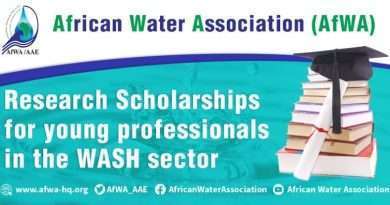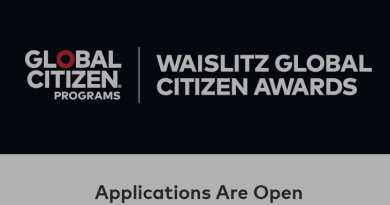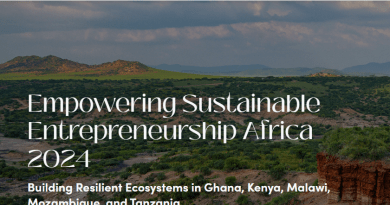Entries open: The Canada Fund for Local Initiatives – Nigeria, Equatorial Guinea and Sao Tome and Principe (2024)
The annual call for proposals for the Canada Fund for Local Initiatives (CFLI) has been officially launched by the High Commission of Canada in Nigeria.
Program Description: The Canada Fund for Local Initiatives – Nigeria, Equatorial Guinea and Sao Tome and Principe (2024)
The CFLI is a program specifically designed to provide support for small-scale projects with high impact in developing countries. These projects should align with the thematic priority areas for engagement of Global Affairs Canada. It is important to note that the program primarily focuses on projects that are conceived and designed by local partners. The selection and approval of projects are carried out by the relevant Canadian embassy or high commission.
In addition to its primary objectives, the CFLI also plays a crucial role in strengthening bilateral relations between Canada and recipient countries, as well as their civil societies. This is achieved through fostering deeper contacts and providing support to local initiatives.
The CFLI offers an average contribution ranging from $30,000 to $60,000 Canadian Dollars. However, it is important to mention that the maximum allocation amount for a project eligible under CFLI is $100,000 Canadian Dollars. For the equivalent amount in local currency, please refer to the currency converter. It is worth noting that all contributions are made in Canadian dollars and then converted to the local currency.
Eligibility: The Canada Fund for Local Initiatives – Nigeria, Equatorial Guinea and Sao Tome and Principe (2024)
Organizations that are eligible to apply for CFLI funding are as follows:
1. Local non-governmental, community, and not-for-profit organizations.
2. Local academic institutions engaged in local projects.
3. International non-governmental organizations involved in local development activities.
4. Intergovernmental, multilateral, and regional institutions, organizations, and agencies working on local development activities.
5. Canadian non-governmental and not-for-profit organizations dedicated to local development activities.
The primary focus of CFLI funding is to support local civil society organizations (including non-governmental organizations) and other institutions operating at the local level. However, international, intergovernmental, multilateral, and regional organizations may also qualify for funding if they collaborate with local partners and implement local projects that align with the CFLI’s objectives. Additionally, municipal, regional, and national government institutions may receive funding if their projects primarily benefit the local community. The CFLI actively seeks out innovative projects that can demonstrate tangible outcomes.
Thematic areas of focus: The Canada Fund for Local Initiatives – Nigeria, Equatorial Guinea and Sao Tome and Principe (2024)
All projects must adhere to at least one of the CFLI’s thematic areas of focus:
1. Advancing gender equality and empowering women and girls.
2. Promoting inclusive governance, encompassing diversity, democracy, human rights, and the rule of law.
3. Enhancing peace and security, with a particular emphasis on conflict prevention, peacebuilding, and addressing the impact of armed conflict on children.
4. Addressing environmental challenges and taking climate action, with a specific focus on adaptation and mitigation, reducing plastic waste and pollution, and promoting the active involvement of women and youth in these domains.
Gender based Analysis: The Canada Fund for Local Initiatives – Nigeria, Equatorial Guinea and Sao Tome and Principe (2024)
In 2017, Canada implemented its Feminist International Assistance Policy with the aim of promoting gender equality and empowering women and girls as key strategies to alleviate poverty and foster a more inclusive, peaceful, and prosperous global community. As part of this policy, the CFLI project application process now mandates a gender-based analysis (GBA) to be conducted. This adjustment is intended to improve the gender equality outcomes of the CFLI program.
Applicants will be required to:
– Evaluate how women, girls, men, and boys are impacted differently by the issue their project seeks to address, while ensuring that the project does not inadvertently cause harm.
– Involve women and/or girls in the development of their project proposal.
– Ensure that the perspectives of these women and/or girls influence the design of the project.
It is important to note that consultations may involve engaging with women and girls from the local community, as well as individuals from civil society organizations and key decision-makers who possess knowledge of the community.
Failure to adequately conduct a GBA may impact the evaluation of your proposal.
Eligible expenses: The Canada Fund for Local Initiatives – Nigeria, Equatorial Guinea and Sao Tome and Principe (2024)
The following project expenses are eligible for CFLI funding:
1. Accounting expenses
2. Administrative and overhead expenses related to the project (overhead should not exceed 15% of total CFLI contribution)
3. Advocacy and lobbying expenses
4. Capital and/or operating expenditures related to the lease and/or purchase and/or building of infrastructure
5. Civic education expenses
6. Conference and event expenditures
7. Expenses for services received by recipients
8. Domestic travel expenses, using the lowest fares possible but not exceeding full fare economy class
9. Environmental assessment expenses
10. Facilities charges
11. Equipment rental and/or purchase (only when the purchase is required to meet project objectives, reflects good value for money, and the recipient has a strong care-and-maintenance plan in place for equipment sustainability)
12. Hospitality expenses, excluding alcoholic beverages
13. Installation, maintenance, shipping, and/or transportation expenses, including fuel
14. Computers and communication devices
15. Lease or rental of vehicles
16. Legal expenses
17. Medical expenses
18. Miscellaneous expenses integral to the project
19. Outreach, communication, and information dissemination expenses
20. Publishing expenses
21. Radio and television broadcast fees
22. Research-related expenses
23. Salary expenses, including stipends, relating to the project
24. Security expenses
25. Training and capacity building expenditures
26. Translation and interpretation fees
27. Vehicle and equipment operation, installation, and/or maintenance
28. Website development and related expenses.
1. The costs listed below are ineligible for CFLI funding:
– Nuclear technologies and facilities
– Assistance to military or paramilitary organizations
– Gifts
– Luxury goods
– Direct fiscal support to a government
– Seed funding and/or microfinance
– Core funding or recurrent costs of an organization
– Expenses incurred before the signing of the contribution agreement, or after it expires.
Application Process: The Canada Fund for Local Initiatives – Nigeria, Equatorial Guinea and Sao Tome and Principe (2024)
To apply for funding through the Canada Fund for Local Initiatives (CFLI), please follow the guidelines below:
1. All projects must be completed within the timeframe of the Contribution Agreement, starting from the date of signature until February 15, 2025.
2. The deadline for submission is May 10, 2024, at 23:59 (GMT+1). Please note that any applications received after this deadline will not be considered.
3. Proposals should be submitted electronically to the email address: [email protected].
4. Only proposals that use the designated application form and include the required budget document will be considered for funding.
5. For detailed information on eligible activities and costs that can be funded through CFLI, please refer to the list of CFLI approved activities and costs.
6. All proposals must be completed in either English or French.
7. Project proposals should provide explicit answers to all questions in the CFLI project application form, including the required gender-based analysis. The proposed project budget should also summarize the activities and associated costs.
8. A selection committee will assess the applications based on their merits for approval.
9. Due to the high number of applicants, only successful candidates will be contacted.
11. Please note that project applications will be kept on file at missions in accordance with Global Affairs Canada’s information management policies.
12. In certain cases, projects spanning two fiscal years (April 2024 to March 2026) may be permitted, depending on the project objectives and complexity of activities.





